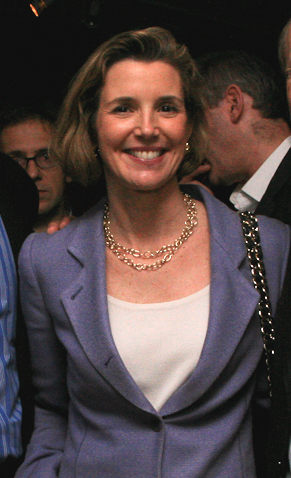Changing perspectives — data with a human face
What’s the first thing you think of when you hear the word “Data”? Unless you’re a science fiction fan, chances are you’re thinking “numbers.” One of our jobs as writers is changing perspectives on data—helping people to grasp what those numbers mean. What they reflect about the world, about us.

Sallie Krawcheck knows how to tell a story with data. Photo by Grace Villamil, CC BY 2.0
Sallie Krawcheck does this about as well as anyone I’ve encountered—including master storyteller and genius investor Warren Buffett. But that doesn’t surprise me. Krawcheck started out as a financial analyst. And successful analysts know how to turn numbers into memorable prose, raw data into recommendations people will follow.
Today, as CEO of the global professional women’s network Ellevate, she’s set her sights on changing perspectives—women’s perspectives about their relationship to money; the business world’s perspectives about its relationship to women. Judging from her book Own It: The Power of Women at Work, she’s doing a damn fine job of that, too.
Changing perspectives — name your data points
Let’s take the subject of how few women hold seats on corporate boards of directors. Depending on how you slice the pie, it’s 15%, 14%...I haven’t seen any number larger than 20%.
Now there are lots of ways to talk about 20%—one in five, two out of ten. Admit it: your eyes are already starting to glaze over. And you care about this stuff. Imagine trying to sell it to someone who doesn’t see how it affects him.
So what does Sallie Krawcheck do? Instead of reeling off numbers, she names her data points:
“There are literally more men named John, Robert, William, or James on corporate boards than there are women.”
Is that brilliant positioning or is that brilliant positioning?
Okay, it doesn’t tell you the actual data—she leaves that for the footnote. But giving human form to the numbers turns the data from an abstraction into something people can easily relate to.
Changing perspectives—getting people to look at a familiar subject in a new way—helps people develop empathy, and empathy creates change. We need a whole lot more empathy in the world. Telling stories instead of reciting data seems a great place to start.